A Matter of Trust — With Carson Group’s Jamie Hopkins
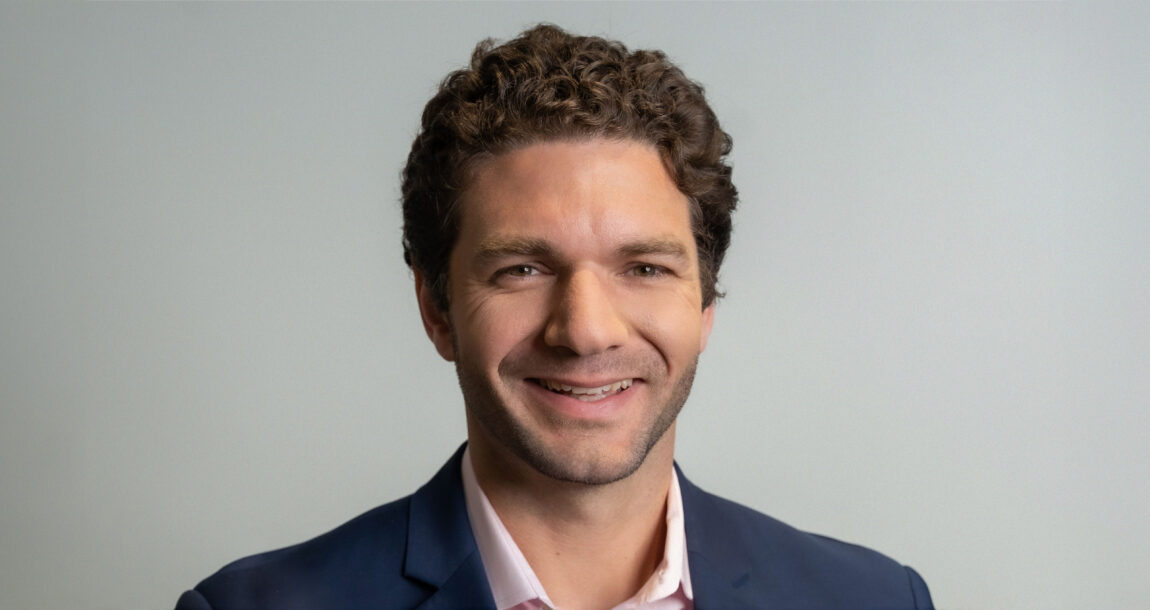
Building trust and transparency are two keys to building success, said Jamie Hopkins, managing partner of Wealth Solutions at Carson Group, a national wealth management firm. A nationally recognized writer, researcher and educator, Hopkins is a regular contributor for Forbes, InvestmentNews and MarketWatch and he has been published in dozens of financial, educational and legal journals.
Prior to joining Carson Group, Hopkins was the co-director of the New York Life Center for Retirement Income and a professor in the Retirement Income Program at the American College of Financial Services.
Hopkins said his mother provided his “why,” as she raised him alone after his dad died when he was only 8. Facing retirement primarily reliant on Social Security and Medicare, Hopkins’ mother also provided another inspiration for him: to build trust in the financial services industry so that people like his mother can get the sound, honest strategy and advice to see them through their senior years.
In this interview with Publisher Paul Feldman, Hopkins describes why he believes the industry needs to focus on building trust.
Paul Feldman: How did you get into this industry?
Jamie Hopkins: In seventh or eighth grade, I wrote that I wanted to be a private equity attorney. I didn’t know what a private equity attorney was at the time — I must have seen it on TV. And I followed that path. In high school, I would tell people, “I want to be an attorney.” I went to Davidson College in North Carolina. They really pushed this notion of trust and being honorable. They have a great honor system. If you see $5 on the ground or you see somebody’s wallet, you don’t take it. That was drilled into us. You could leave your wallet with cash in it lying around for three days there, and nobody would touch it.
From there, I went to Villanova University for law school and my first real job was at a firm called Ennovance Capital, which is a private equity firm in Pennsylvania. After that, I ended up clerking in the appellate division, under Marie E. Lihotz, who’s one of my mentors. I worked on one of Bernie Madoff’s cases, I worked on some pension cases, some retirement benefits cases, and that kind of piqued my interest about that personal finance side of the world.
I eventually ended up doing some of my own estate planning work and then joined The American College and spent about seven years there building out the retirement income program. From there, I joined Carson Group to run its retirement division. And then on to many other things since then.
That was the physical path of my career. But my “why” story is a little bit different. My mom really is my “why.” My dad died when I was 8 and my mom took up that mantle of taking care of the family, running a business and giving us all opportunities. She’s done phenomenally well over the course of the years, but she looks like a lot of Americans: she’ll be very reliant on Social Security and Medicare, almost has her mortgage paid off — but gave all of us amazing opportunities. And what has always driven me is this: I want other people like my mom to have that opportunity to succeed and to have a secure retirement, and that’s really my “why.”
Feldman: Well, everybody needs to have a “why.” What was another pivotal point in your journey?
Hopkins: The Bernie Madoff case also was a pivotal moment when I started to realize that there’s a need for improvement in the personal finance world.
The Bernie Madoff case was about a total abuse of trust in what should be a trust relationship. A financial services relationship between the professional and the client must be based on trust.
I thought about how I could improve that level of trust so people like my mom could trust financial services. It was in that realization that I saw the opportunity to have an impact in that space. That’s usually how I look at an area: can I build something there?
I think I’ve built four or five different joint ventures. I’ve invested in a couple of different companies. I’m now running several divisions at Carson. But it was going after that trust aspect that attracted me to this profession.
Feldman: What are some strategies you give to somebody who wants to gain that kind of trust?
Hopkins: Trust is very easy to break but very hard to build. Trust can be developed, though.
From a consumer standpoint, there are certain things you can do to show levels of trust. I wouldn’t hire an attorney to represent me in court who didn’t go to law school, and I wouldn’t hire a financial service professional who didn’t emphasize their professional education in the same way. How dedicated are you to your craft? That’s one thing that’s important in building trust. The other is to be transparent.
There was some research that showed that if you were an advisor who had written a book, it was the No. 1 way that consumers decided on trust. It was the biggest factor — more than your website, your education and your credentials. And if you kind of dive into that a little bit, it’s because you took the time to codify what you believe in.
You put down what you care about, and you’re able to articulate it.
I had previously done some research with data from about 1,200 or 1,400 individuals. We found that their trust with their advisor moved up when the financial service professionals were transparent with their fees before the arrangement. Meaning that the consumer understood how the advisor got paid before they engaged them.
That’s another thing that advisors can act on. I don’t know whether everybody feels comfortable putting fees on their website, but that has become more and more normal. I suggest that advisors do that.
Feldman: You’re a financial advisor, but you’re also doing insurance. How does that work together and why should everybody in this industry do that?
Hopkins: I’m a fan of comprehensive planning. Comprehensive planning to me means we look at insurance, we look at risk management, we look at investments in asset management, we look at tax planning and estate planning. So, we’re doing more of a full picture of financial planning.
I don’t want people to feel that if you’re good at insurance or you’re good at investments that you must become good at everything. You should focus on your strengths. If you want to say I’m a planner and I’m doing financial planning for my clients, you can’t ignore insurance, you can’t ignore estate planning or trust services or tax services or the investment portion.
The advisory world has shunned insurance because for a while the only products out there were commission based and had to be farmed out to somebody else. That landscape has shifted dramatically. There are lots of different ways for you to place insurance today. The FMOs and IMOs all have outsourced desks now. There are advisory annuities and advisory insurance products. If you want to outsource, you can find a way today — and that has been a big shift from 15 years ago.
Feldman: Do you operate on a fee-only basis or are you a hybrid firm and how do you deal with that?
Hopkins: Carson is a hybrid firm. That allows us to be different and nimbler than some other firms. We do have a lot of advisors who have gone fee-only, but that does not mean that their clients can’t get insurance. We have a joint venture with an IMO. So, we have access to their commission products, and they have an outsource desk.
We have advisors who are still insurance licensed and so they can place the business themselves, and we do have advisory insurance products available, too. We still have a relationship with the broker-dealer, Cetera.
Feldman: How do you view life insurance in an overall plan? How does life insurance fit into a portfolio?
Hopkins: There are four or five main roles that life insurance can play in a financial plan. And we’ll start with the simplest one — which is the reason that life insurance exists — offsetting the loss of future income due to an unexpected death.
You can go further beyond the protection it provides and get the tax benefits that occur with life insurance. Then, we can get creative with wealth generation investments. And then look at how that fits into an overall strategy. Are we trying to fund things like college education, retirement income, in the sense of being able to take distributions from a well-funded policy? And so, I’d say that bucket number two is this investment wrapper we get with life insurance.
The next one is wealth transfer, which with 2025 getting close, is becoming a bigger part of conversations. We have this estate tax that could come back in a meaningful way in a couple of years. So life insurance becomes one of the most efficient ways to transfer wealth.
Lastly, I do view life insurance as an asset and there are continued benefits usually of asset and investment diversification. The main reason to have a combination of bonds and stocks used to be, “Hey, don’t worry, these things kind of move in opposite directions, so they’re not both going to go down at one time.” And boom! Bonds got crushed, investments go down and people are looking around thinking, “Man, I wish I had something else.” And that can be life insurance.
It can play a role in the diversification bucket.
Feldman: There are multiple types of life insurance. You’ve got indexed universal life, universal life, whole life, term insurance, and I know that it really depends on the client you’re advising. What do you recommend most often?
Hopkins: Just from a volume perspective, term insurance is easily No. 1. We do more term insurance than anything else. And that makes sense. That’s the purest form of insurance. It’s the cheapest form just from a total dollar standpoint. I think most people who are married, have kids, have loved ones who would suffer financially, should have term insurance.
I would probably say the type of life insurance we’ve seen the most over the last of couple of years has been anything with the linked long-term care benefit riders on it.
Feldman: From your view of the industry, where do you see financial advisors and insurance agents missing the mark today?
Hopkins: One big miss of the mark today is not being transparent about fees and conflicts. How we get paid impacts our behavior.
If you earn money because you sell a product, that’s OK. I think that we’ve shied away from that. Our industry is one of the least trusted industries out there. We haven’t been good at our value articulation.
Another thing we miss the mark on is how to attract the next generation of advisors and insurance agents into this world. That is a struggle. There’s a talent crisis occurring. We’re losing a lot of advisors and they’re not being replaced by new people coming into the field. They go through school and then they end up somewhere else and disappear from the system quickly.
And that’s concerning.
Feldman: How do we fix this problem? Because it’s a significant problem.
Hopkins: I started a nonprofit three years ago called FinServ Foundation. The notion was to take college students in financial planning programs and, going into their junior year, bring them into the program. Start doing group coaching with them that last year they’re at school and help them get internships.
The year after they graduate, we continue to provide them with a coach. And they get coaching while they are entering the profession, which is where there is a gap. We’re trying to bridge the gap between leaving school and getting to that first job by creating a community, and creating exposure, education and coaching.
The other program that I’ve also worked on is a program at Carson where we take people out of school and pay them a salary to learn the business. They learn marketing, advisory, investments, financial planning — and they don’t have any insurance sales requirements. They get exposure to insurance.
If you look at TikTok or Twitter, or watch TV, it’s about wealth creation. It’s about how you build multiple businesses and have ownership stakes in them. Our industry must embrace that and show that it is actually a great industry to be an equity owner in, and to have that income stream that has a good business value to it. That’s something really appealing that we’re missing.
Feldman: Do you think that the future of this business is bringing people in on the financial advisory side or on the insurance side?
Hopkins: I think the future of this business is bringing in people with a clear career path. I think that’s the future. I don’t think it really matters exactly how they come in — whether they come in and experience insurance and sales first or planning first or corporate life first. I think that we will see successful people come through all of those.
Very few people — I think it’s less than 12% — stay in the business five years.
Feldman: Let’s talk about somebody successful in the business. How do they get to the next level? What are some things you say?
Hopkins: I’m going to give them a couple of tips. In this business, if you want to move from successful advisor, insurance agent, to successful business owner, you must make that transition from being the doer to being the leader. And that is hard to do. Most of our coaching program at Carson Group is about how you make that transition from advisor to business owner.
One of the most important things you must learn to do is focus on your strengths and learn to delegate.
For example, Tom Brady was one of the best quarterbacks ever to play the game. Every once in a while, he would throw an interception and he might have to try to tackle somebody. He was probably one of the worst tacklers in the NFL. Slow, not super strong — just an awful tackler.
He probably could get twice as good at tackling, and he’d still be the worst tackler in the NFL.
He never practiced tackling. What did he do? He spent the off-season practicing what he was good at, and he surrounded himself with great teams of people who could tackle.
As you grow, you must let go of those things. Your value is not your ability to send an email. It is not your ability to create investment portfolios, as much as a lot of advisors and insurance professionals don’t like hearing that. You must find those strengths and delegate almost all the rest out. That allows you to do more of what you are good at.
And that is a really hard thing for an entrepreneur in a small business to do, to let go of those things. You have to realize that’s OK. The best use of your time is getting new clients in the door and working with them.
And I will also tell people to pick the right partners. When I say delegate, you can also insource and outsource things. The world is much more open to outsourcing things today. You can outsource your investment management. You can outsource your technology or your compliance.
But if you are going to outsource, make sure you find good partners, because you need to trust them. If something breaks, that’s going to land on you. It’s going to land on the trust that you’ve built with your clients. And if you say, “Hey, let’s go use this other partner to come in and introduce them to our client,” and that goes south, you might ruin that trust relationship. So, pick good partners in this business.
Feldman: Are you using any artificial intelligence at the moment?
Hopkins: We are using machine learning techniques today and lead scoring and deep-level data analytics. I wouldn’t really say we’re using what I would look at as true AI today.
Feldman: AI today is all about human programming. It’s all about the human prompt at this point.
Hopkins: We have a client acquisition offering that we built out with Boston Consulting Group and Bain Capital over about the last 18 months. We have incorporated some of what I would say is closer to true AI capabilities inside that program, in the sense of learning about people, scoring, connecting them to the right type of advisor who matches up to their profile needs. And then on the financial planning part, we’re getting close with some of the programs we are using.
Our marketing team has started using things like ChatGPT for some aspects of their work.
Now, I don’t think any of that is giving you great finished products today. It’s about the prompt, it’s about the time you spend with it, it’s about cleaning it up afterwards. But it can knock out some pretty fast versions of things that can at least give you an outline, a starting point. But it also lies really well.
Feldman: If you don’t have a human behind it, it doesn’t work.
Hopkins: One hundred percent. So that stuff is coming. If you go back three years ago, we didn’t have anything functional. We now have some stuff that’s starting to work. In another three years, it’s going to be really meaningful.
Some of the stuff it can do is very scary, making up lies and creating some very convincing fake video. I don’t think we’re ready for it at all. It does concern me. Not all technological advancements have been good for humanity. I’m not against technological advancements — I don’t think it’s going to be the end of the world — but I do think that we’re probably not ready for it. It scares me in that sense.
Feldman: Where do we go from here? Robo assistant advisors? I think we still need a human. What do you think?
Hopkins: Most people, especially as you have more wealth, will want human interaction and that trust factor. Especially for those who didn’t grow up as digital natives, we still must learn to grow into technology.
Somebody who is 6 years old today — who grew up with iPhones and tablets in their hands, who grew up in a digitally native world — they may feel OK with it.
So, while I do think that AI and machine learning will start to become more important on the front end, the initial experience — the human behind it — will be really important. We will have more people to serve, with the number of advisors and insurance agents shrinking every year for the next 20 years. I don’t see us fixing that trend fully. But what that tells you is there’s never been a better time in the history of being alive to be in this industry as a professional than today.
Paul Feldman started the website InsuranceNewsNet in 1999, followed by InsuranceNewsNet Magazine in 2008. Paul was a third-generation insurance agent before venturing into the media business. Paul won the 2012 Integrated Marketing Award (IMA) for Lead Gen Initiative for his Truth about Agent Recruiting video and was the runner-up for IMA's Marketer of the Year, a competition that includes consumer and B2B publishing companies. Find out more about Paul at www.paulfeldman.com.




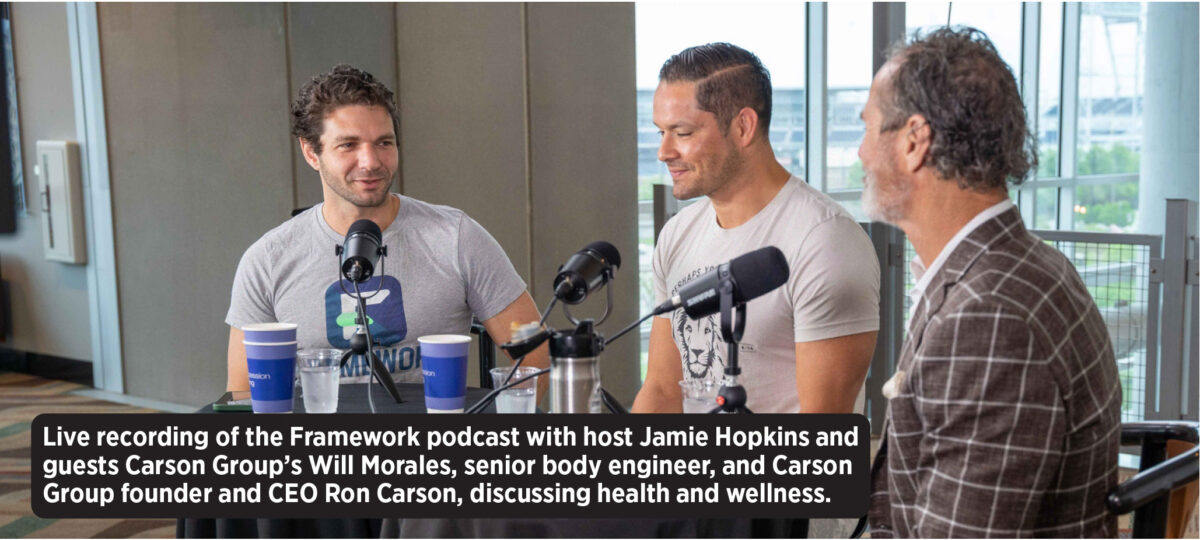
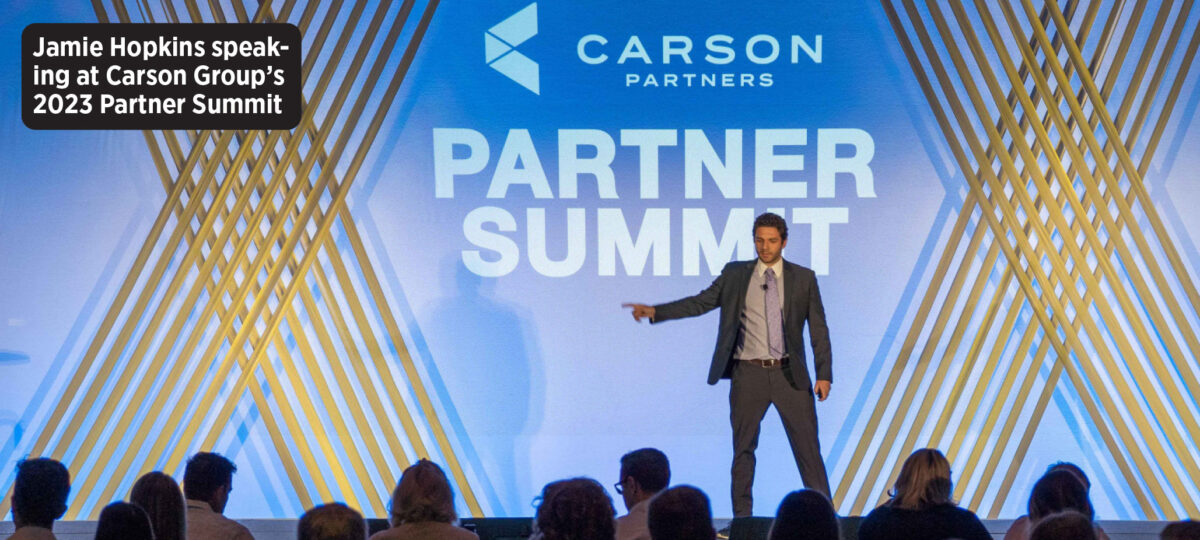
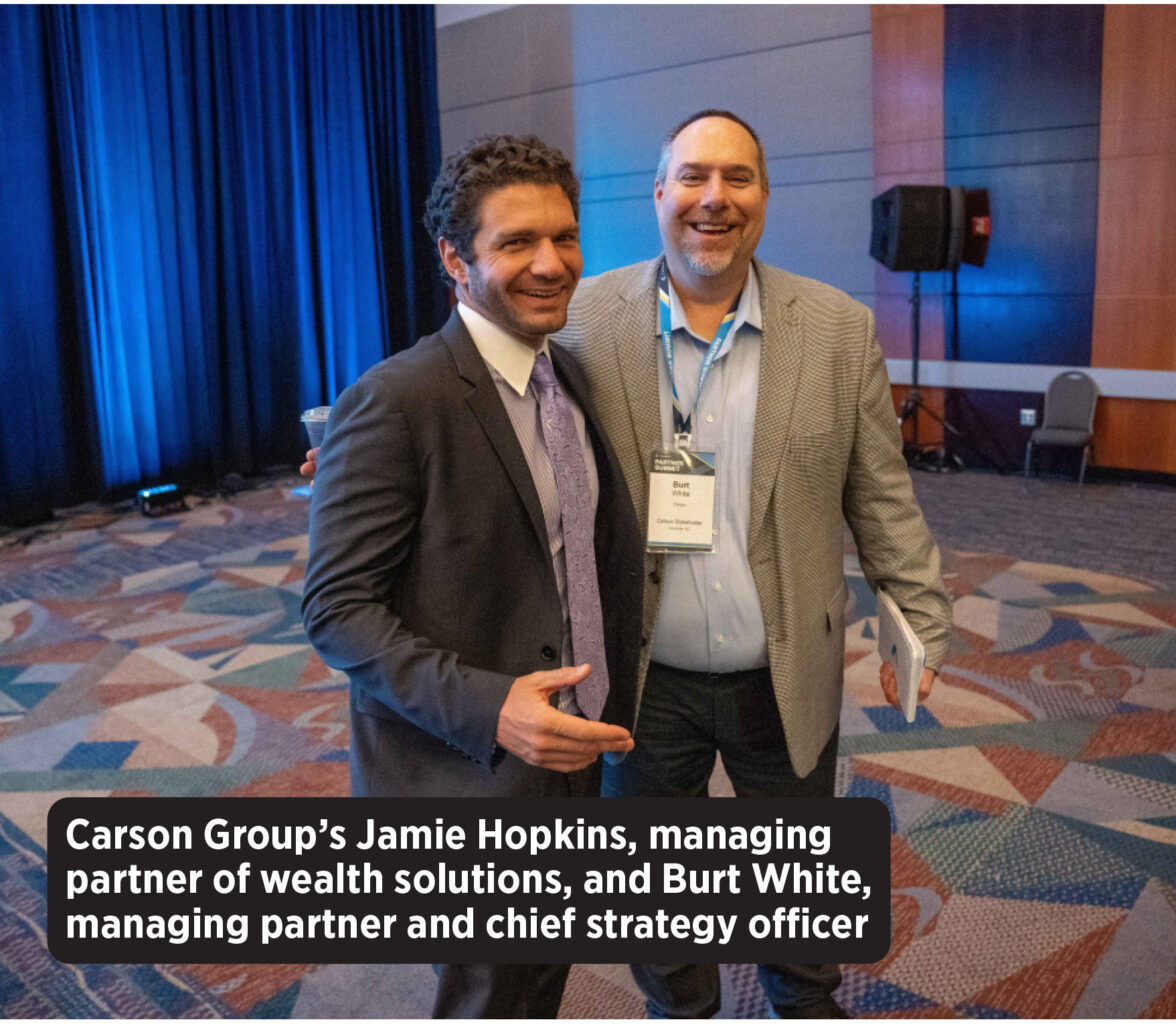
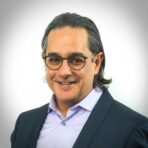
How annuities can be part of your client’s retirement formula
The top of the ladder — with Chlora Lindley-Myers, Missouri insurance director
Advisor News
- Panel: Is the American retirement system ‘broken’?
- Goldman Sachs, others weigh in on what’s ahead for the market in 2025
- How is consumers’ investing confidence impacting the need for advisors?
- Can a balance of withdrawals and annuities outshine the 4% rule?
- Economy ‘in a sweet spot’ but some concerns ahead
More Advisor NewsAnnuity News
Health/Employee Benefits News
- The illusive sunny side
- How one doctor tried to take the profit motive out of health insurance
- Opinion: Scores of Alaskans face another eye-watering spike in their health care costs next year
- Millions face higher health costs if subsidies expire
Millions will see rise in health insurance premiums if federal subsidies expire
- Study Findings from Brown University Broaden Understanding of COVID-19 (Continuity of Care and Lifestyle Intervention Programs for Spanish-speaking Immigrants Without Health Insurance At a Free Clinic In Rhode Island): Coronavirus – COVID-19
More Health/Employee Benefits NewsLife Insurance News